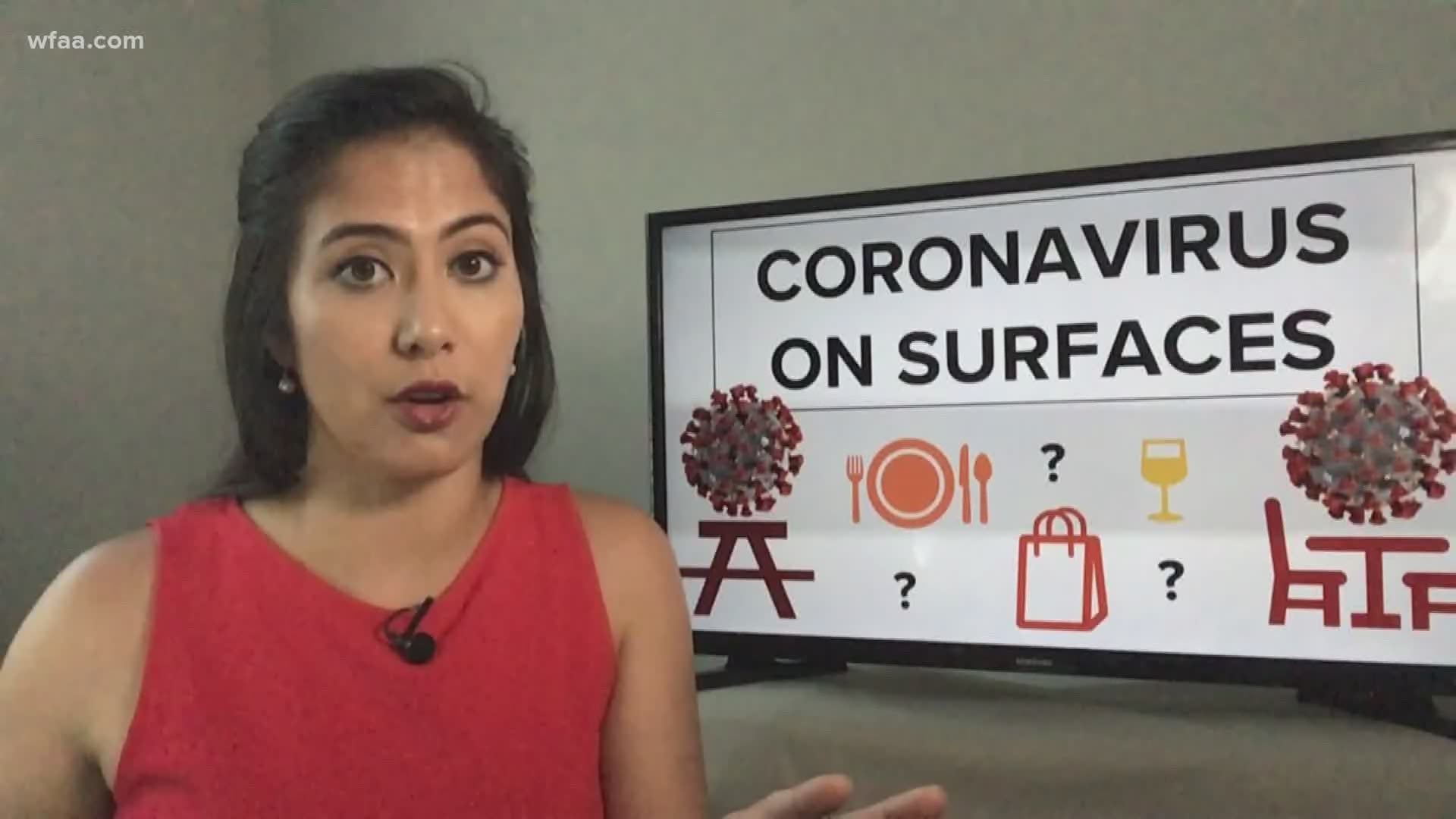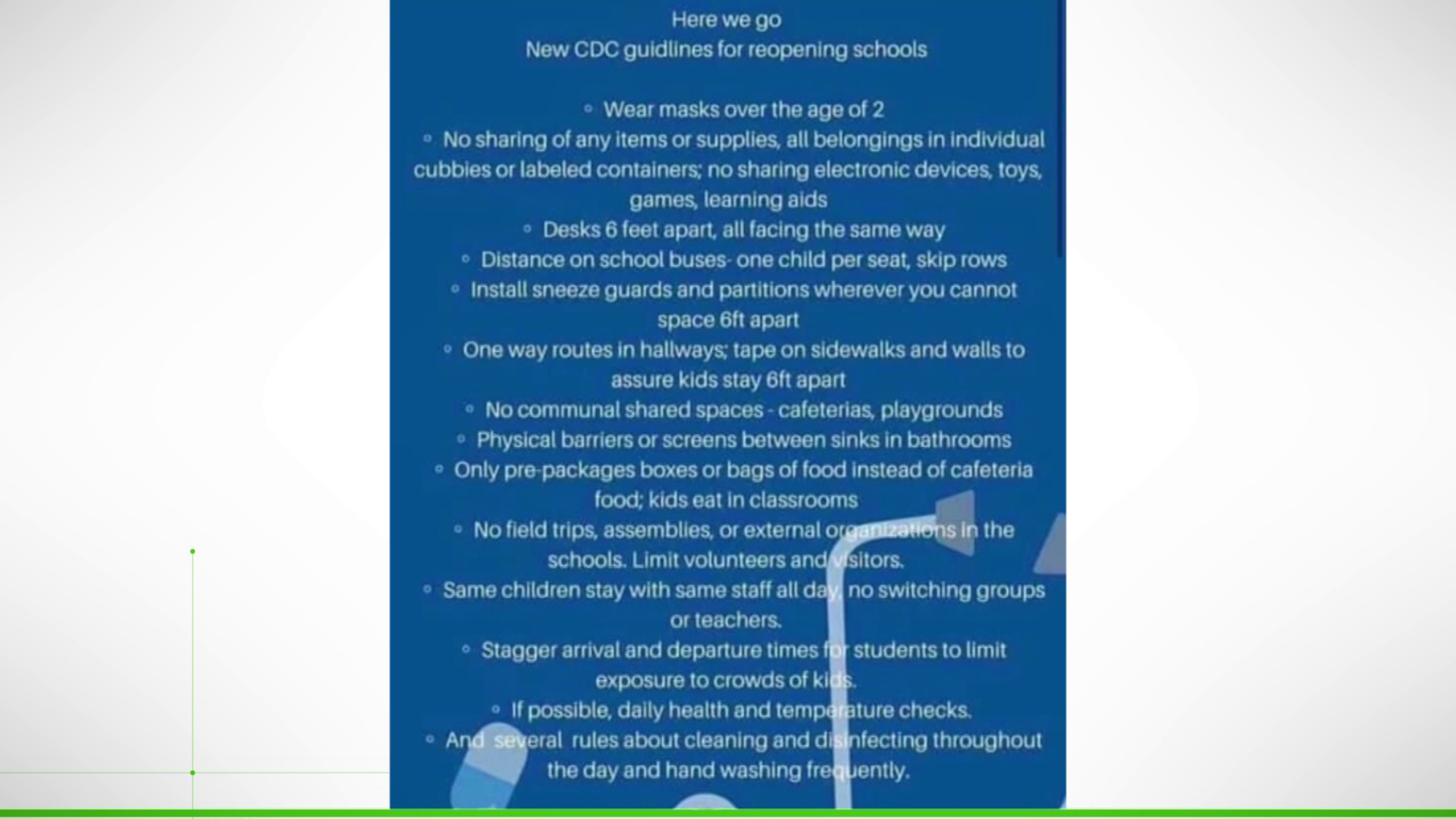DALLAS — The CDC updated their website last week to clarify information about the spread of the coronavirus on surfaces.
In a press release dated Friday, the CDC wrote:
“The primary and most important mode of transmission for COVID-19 is through close contact from person-to-person. Based on data from lab studies on COVID-19 and what we know about similar respiratory diseases, it may be possible that a person can get COVID-19 by touching a surface or object that has the virus on it and then touching their own mouth, nose, or possibly their eyes, but this isn’t thought to be the main way the virus spreads.”
With this knowledge, it begs the question: How long does the coronavirus last on surfaces?
In fact, that question ranked in the top five trending Google questions related to coronavirus this week.
To help answer this question, experts have pointed to two different recent studies: one in The New England Journal of Medicine and one in The Lancet Microbe.
The study by The New England Journal of Medicine included scientists from the CDC and the National Institutes of Health.
Here’s how long the coronavirus can live on different surfaces, according to those two studies:
CARDBOARD:
According to the Journal of Medicine study, the virus causing COVID-19 can live on cardboard for 24 HOURS.
WOOD:
According to The Lancet study, the virus causing COVID-19 can live on wood UP TO TWO DAYS.
PLASTIC & STAINLESS STEEL:
According to the Journal of Medicine study, the virus causing COVID-19 can live on plastic and stainless steel for THREE DAYS.
However, The Lancet study says the virus causing COVID-19 can live on plastic and stainless steel for UP TO SEVEN DAYS.
GLASS:
According to The Lancet study, the virus causing COVID-19 can live on glass for UP TO FOUR DAYS.
Experts say the above time frames can vary depending on several factors, including temperature.
As for produce, both the CDC and the FDA say “there is no evidence to support transmission of COVID-19 associated with food.”
However, health experts suggest washing produce with running water and without soap to reduce risk.
More from WFAA:
- Water parks, food courts among next wave of Texas businesses allowed to reopen
- Here's what a visit to Six Flags over Texas will look like when it reopens
- Right on the Money: Texas oil rigs down, unemployment up, space industry heading way, way up
- Some Texas state parks reopen for overnight camping Wednesday
- Plans to reopen school in North Texas are taking shape


